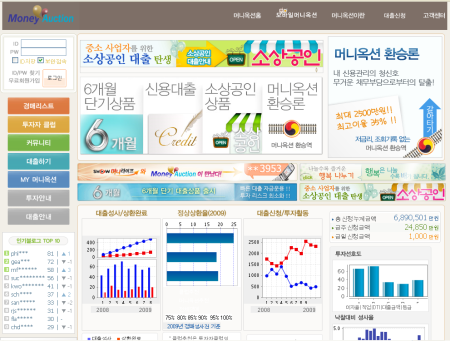P2P Lending and crowdfunding are two totally different concepts you say? True so far.
P2P Lending means the lender loans the borrower money. The amount is repaid together with interest.
Crowdfunding is usually applied to describe concepts were a crowd decides to finance project. The motivation there is to see the project getting done. The funds are not paid back but spent on the project and investors are sometimes rewarded with the art or products that are a result of the project. A good example for a crowdfunding platform is Kickstarter, which P2P-Banking.com covered earlier – see article: ‘Kickstarter – Pledge Money to Fund an Artist‘.
Moneyauction creates ‘Reward Funding’ – merges P2P Lending and Crowdfunding
Moneyauction, a leading p2p lending service in Korea, now announced their ‘reward funding’ option. Continue reading

 In Korea, p2p lending service
In Korea, p2p lending service 